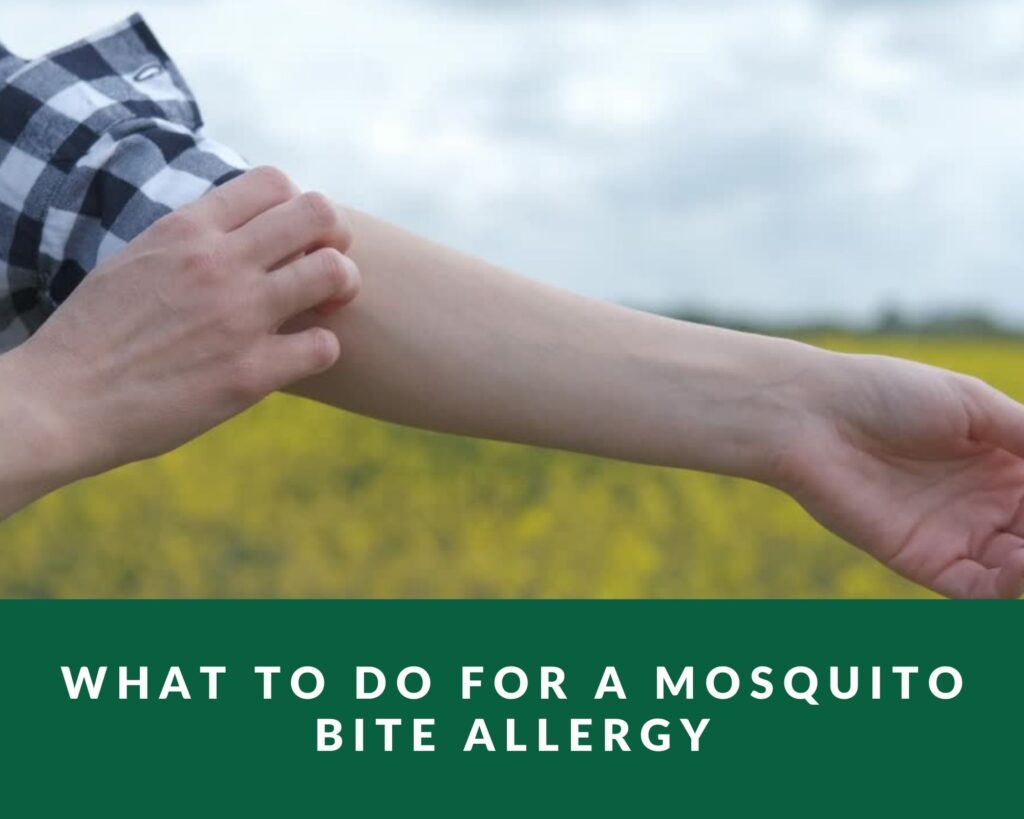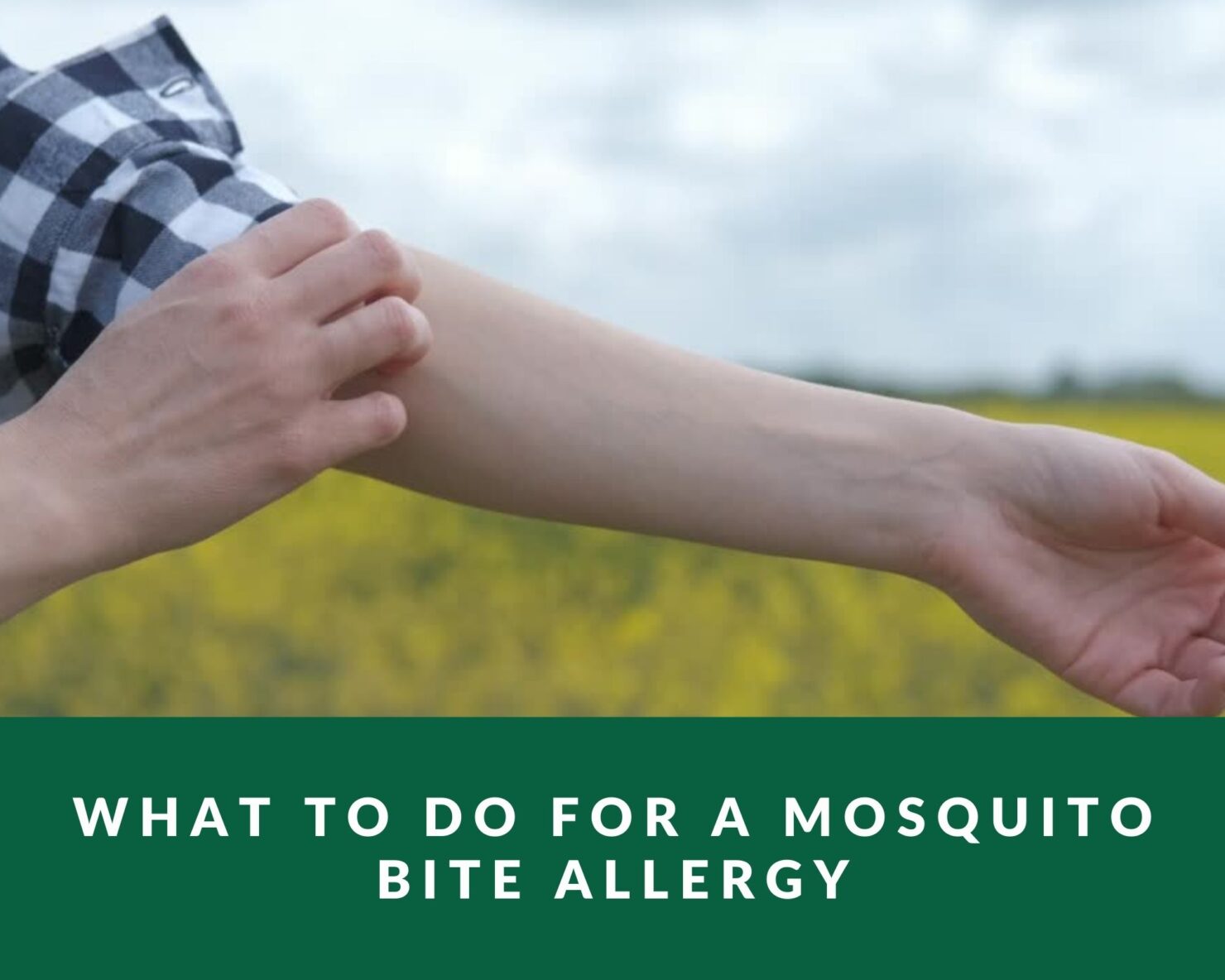
What to do for a mosquito bite allergy
Sweet recollections of a cool evening breeze or the smoky smell of a campfire might be evoked by summer nights. But, the hordes of insects assaulting your personal space surely won’t qualify as a priceless memory. Which is worse? when you actually have an allergy to mosquito bites.
What is a mosquito bite allergy
These are not toxins or pathogens; rather, they are allergic hypersensitivity reactions brought on by the non-toxic allergenic proteins found in saliva injected by a female mosquito (male mosquitoes do not feed on blood).
When bitten by a mosquito, many humans experience an immunological reaction to these proteins. But only a small percentage of them experience clinically significant allergic responses (most commonly large local reactions).
The typical wheal and flare reactions to mosquito bites are generally excluded from the term “mosquito bite allergies,” despite the fact that they are likewise allergic in origin.
Symptoms of a mosquito bite allergy
Most people react differently when bitten by a mosquito. Even so, the symptoms could evolve with time. For instance, if you are bitten repeatedly over a long period of time, they might occur less frequently. These responses can consist of:
Anaphylaxis
You might have anaphylaxis if your allergic reaction to a mosquito bite is strong. This is recognized by symptoms like a swollen throat, wheezing, hives, and difficulty breathing. If you experience anaphylaxis, you must get medical help right away.
Extreme swelling
Around the bite, there is often some minor edema. The swelling may cover the entire area of your body where you were stung if you are experiencing an allergic reaction. You should not postpone seeking medical assistance in circumstances like this.
Fever
Allergies frequently cause a low-grade fever. This is how your body defends against an illness.
Swollen lymph nodes
Your lymphatic system could become swollen if you have a mosquito allergy. As a result, your lymph nodes will enlarge.
What causes mosquito bite allergy
Some elements in mosquito saliva trigger the development of mosquito bites. The body creates antibodies in response to the protein shake in saliva when it gets into the bloodstream, triggering an immunological response.
Typically, sensitization to mosquito bites—or the mechanism by which an allergy develops—occurs over the course of several bites. A person could not have any symptoms after being exposed to a particular species of mosquito for the first time. Yet, if a person is bitten by the same species repeatedly over time, the body may become sensitized and an allergy may manifest.
Sadly, it’s challenging to determine the precise reason why some people become allergic to mosquito bites.
How to detect if you have a mosquito bite allergy
You can experience clotting and scabbing after being bitten by a mosquito, which discharges saliva. Several people experience itching and small welts because they are allergic to the ingredients in the mosquito’s saliva.
Although many people may, in fact, develop allergies to mosquito bites, some may experience more severe reactions than others. It’s possible that you may suffer from Skeeter Syndrome if you’re allergic to mosquito bites. It may be necessary to seek medical assistance if you have more severe symptoms from this type of allergy.
Mosquito bite allergy pictures


Read also: What Does Bed Bug Bites Look Like On Arms


What can a mosquito bite allergy cause
Symptoms of an allergic response can result in:
- The bite site is swollen in several places.
- Stinging rashes
- Bruises
- Heat
- Redness
- Welts
- A minor fever
- Enlarged lymph nodes
Usually, within the first few hours following the bite, these reactions take place. After a mosquito bite, some people experience severe swelling in those locations. For instance, the majority of an arm or leg can be swollen.
Read also: How are mosquito bites dangerous
How to treat an allergic reaction to mosquito bite
- To lessen swelling and pain, elevate the afflicted area and apply ice.
- Use a topical lotion from a drugstore for the affected region.
- Blisters should be cleaned with soap and water without being broken.
- Try topical steroids or oral antihistamines if the itching doesn’t go away.
If the swelling intensifies or the region seems infected, see a doctor. There’s a strong chance that you already know if you respond badly to mosquito bites. You should speak with a doctor if you have any concerns regarding a mosquito bite’s impact.
What Next?
You might need to speak with a specialist if you’ve seen mosquitoes in your yard in order to get rid of the issue. Professionals who specialize in mosquito management can check your yard for factors that promote the rise of mosquito populations and suggest control measures.
Read: When To Worry About A Mosquito Bite
It’s critical to get medical assistance right away if you experience any anaphylactic symptoms after being bitten by a mosquito, including wheezing, lightheadedness, or fainting.

